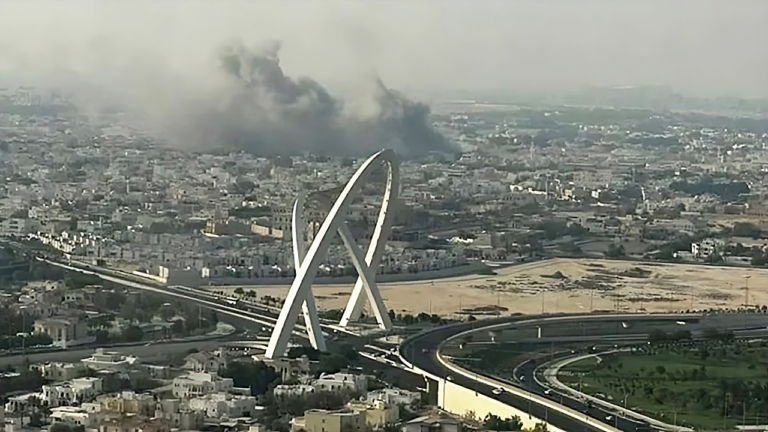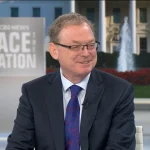The sudden escalation in the Middle East has drawn global attention once again, this time with Israel reportedly launching a strike on Doha, the capital of Qatar. The move shocked international observers, not only because Qatar has traditionally positioned itself as a mediator in regional conflicts, but also because Doha is home to many exiled political leaders, including figures associated with Hamas.
- The Context Behind the Strike
- Why Qatar Became a Target
- Geopolitical Implications of the Strike
- The Humanitarian Dimension
- Reactions from Regional Powers
- Global Diplomatic Fallout
- The Strategic Message to Hamas
- The Risk of Escalation
- Expert Perspectives
- The Role of the United States
- FAQs
- Why did Israel target Doha specifically?
- What role does Qatar play in the Hamas conflict?
- How did other countries react to the strike?
- Could this lead to a wider regional war?
- What does this mean for global energy markets?
- Conclusion
The strike raises profound questions about Israel’s strategy, the shifting geopolitical dynamics in the region, and what this means for global diplomacy. Understanding why Israel would target a Gulf capital requires a closer look at both the immediate military reasoning and the broader political context.
The Context Behind the Strike
For years, Qatar has played a dual role in Middle Eastern affairs. On one hand, it has hosted U.S. military bases and maintained strong ties with Western powers. On the other, it has allowed Hamas leaders to operate out of Doha, providing them with a base of political and financial support. Israel has long criticized Qatar for this policy, accusing it of enabling Hamas to continue its operations against Israel from abroad.
The strike on Doha did not occur in a vacuum. In the weeks leading up to the incident, tensions in Gaza had escalated sharply. A series of rocket attacks and Israeli counter-offensives heightened the conflict, pushing Israel to expand its operations beyond Gaza’s borders. Reports suggested that Israel received intelligence about Hamas leadership coordinating strategies from Doha, prompting a decision to act against what it considered a critical hub of enemy activity.
Why Qatar Became a Target
Qatar has long been a paradox in Middle Eastern politics. It is one of the wealthiest nations in the world per capita, leveraging its vast natural gas reserves to wield outsized influence in regional diplomacy. Yet its policy of hosting groups such as Hamas has made it a lightning rod for criticism. Israel argues that allowing Hamas leaders to reside and operate freely in Doha undermines peace efforts and prolongs the cycle of violence.
Israeli officials, according to analysts, viewed Doha not merely as a symbolic target but as a functional one. By striking near Hamas-linked facilities or figures in Doha, Israel aimed to send a message: that no safe haven exists for those who orchestrate attacks against it, even if they are thousands of miles from the battlefield. This move, however, risks triggering a diplomatic crisis with Qatar and its allies.
Geopolitical Implications of the Strike
The strike has ramifications that go far beyond the Israeli-Hamas conflict. Qatar is not just another regional player; it hosts the Al Udeid Air Base, the largest U.S. military installation in the Middle East. This base is critical for American operations across the region, from counterterrorism to maintaining a balance of power against Iran. An Israeli strike in Doha, therefore, indirectly involves the United States, raising questions about how Washington will navigate the fallout.
Experts suggest that Israel may have informed U.S. officials before the strike, though this has not been confirmed. If Israel acted unilaterally, it risks straining its relationship with Washington, a vital ally. On the other hand, if there was quiet coordination, it may signal a broader shift in U.S.-Israeli strategy toward cracking down on Hamas leadership abroad.
The Humanitarian Dimension
Beyond politics and strategy, the strike in Doha raises humanitarian concerns. Qatar is a global hub, home to expatriates from around the world and a growing tourism industry, especially after hosting the FIFA World Cup in 2022. Any military action within its borders risks civilian casualties and global outrage.
So far, reports suggest that the strike was highly targeted, aimed specifically at individuals linked to Hamas. But the fact that it happened in a civilian capital underscores the complexity of modern warfare, where political leaders and militant figures often embed themselves in urban settings. The risk of collateral damage remains high, and such actions inevitably provoke condemnation from human rights organizations.
Reactions from Regional Powers
The response from the Arab world has been swift and sharp. Several Gulf states, even those that have normalized relations with Israel under the Abraham Accords, condemned the strike as a violation of Qatari sovereignty. Saudi Arabia and the United Arab Emirates, both of which have sought closer ties with Israel in recent years, now face a delicate balancing act.
Iran, meanwhile, seized on the opportunity to portray itself as the defender of Palestinian rights and regional sovereignty. Iranian officials condemned Israel’s actions and vowed to support Hamas and other groups resisting Israeli pressure. This further complicates the geopolitical chessboard, as Israel risks pushing Arab states closer to Tehran by overstepping perceived boundaries.
Global Diplomatic Fallout
The United Nations called for an emergency session to address the strike, with member states divided over how to respond. Western nations are in a difficult position: while many acknowledge Israel’s right to defend itself, striking a capital city in the Gulf sets a dangerous precedent. It risks turning regional disputes into global flashpoints.
European nations, particularly those with strong economic ties to Qatar, expressed concern over the strike. Qatar is a major supplier of liquefied natural gas (LNG) to Europe, especially as the continent seeks alternatives to Russian energy. Any destabilization in Doha threatens global energy markets, adding another layer of urgency to the diplomatic crisis.
The Strategic Message to Hamas
From Israel’s perspective, the strike was not just about eliminating specific individuals but about sending a broader message to Hamas and its supporters. By hitting Doha, Israel demonstrated that it is willing to extend the battlefield beyond traditional borders, targeting leadership networks wherever they operate.
This approach mirrors Israel’s longstanding policy of targeting militant leaders abroad, from assassinations in Lebanon to covert operations in other countries. However, targeting a Gulf capital raises the stakes significantly. It signals that Israel views the current conflict as existential and that it is prepared to escalate in ways previously unthinkable.
The Risk of Escalation
One of the greatest risks stemming from the strike is escalation. Qatar has traditionally avoided direct military confrontation, relying instead on diplomacy and its economic influence. However, a direct strike on its capital could force it to reconsider its stance. Even if Qatar does not respond militarily, it may intensify its support for Hamas and other groups opposing Israel, further fueling the cycle of violence.
Additionally, the strike risks pulling in other regional players. If Iran increases its involvement or if other Gulf states feel pressured to take sides, the conflict could spiral into a broader regional war. Analysts warn that such an outcome would destabilize not only the Middle East but also global markets and international security.
Expert Perspectives
Political analysts are divided on whether the strike was strategically wise. Some argue that it was a necessary step to weaken Hamas and demonstrate Israel’s resolve. Others caution that the long-term costs—diplomatic isolation, potential retaliation, and damage to regional alliances—may outweigh the short-term gains.
Michael Stephens, a senior fellow at a Middle East think tank, noted: “Israel has always pursued a doctrine of deterrence, but deterrence requires careful calibration. Striking Doha risks overextension and could undermine Israel’s relationships with partners it needs to contain larger threats in the region.”
On the other hand, Israeli officials argue that failing to act would only embolden Hamas and encourage other groups to exploit safe havens abroad. From their perspective, the strike reinforces a doctrine of accountability: if you plot against Israel, there is no place in the world where you can feel secure.
The Role of the United States
The United States now finds itself in a challenging position. As Qatar’s closest security partner and Israel’s staunchest ally, Washington must carefully navigate its response. Publicly, U.S. officials have called for restraint and urged both sides to avoid further escalation. Privately, however, analysts suggest that Washington may sympathize with Israel’s frustration over Hamas leadership operating from Doha.
At the same time, the U.S. cannot afford to alienate Qatar, a critical partner in energy, diplomacy, and security. Balancing these competing priorities will test the Biden administration’s foreign policy strategy and could have lasting consequences for U.S. influence in the region.
FAQs
Why did Israel target Doha specifically?
Israel reportedly believed that Hamas leaders were using Doha as a base to coordinate operations. By striking there, Israel sought to disrupt Hamas’s leadership network and send a message that no location is off-limits.
What role does Qatar play in the Hamas conflict?
Qatar has provided financial aid to Gaza and hosted Hamas leaders in exile. While it frames this as humanitarian and diplomatic support, Israel and its allies argue that it enables Hamas to continue its operations.
How did other countries react to the strike?
Arab nations condemned the strike as a violation of sovereignty, while Western nations expressed concern about escalation. The U.S. faces a dilemma, given its close ties to both Israel and Qatar.
Could this lead to a wider regional war?
There is significant risk of escalation. If Qatar intensifies its support for Hamas or if Iran becomes more involved, the conflict could spread beyond Gaza and Israel, threatening wider regional stability.
What does this mean for global energy markets?
Qatar is a major supplier of liquefied natural gas. Any instability in Doha raises concerns about energy security, particularly in Europe, which relies heavily on Qatari LNG.
Conclusion
The strike on Doha marks a turning point in the Israeli-Hamas conflict and Middle Eastern geopolitics more broadly. Israel’s decision to target a Gulf capital highlights the lengths it is willing to go in pursuit of its security objectives, even at the risk of diplomatic fallout and regional escalation. For Qatar, the strike represents both a challenge to its sovereignty and a test of its strategy of balancing diplomacy with controversial alliances.
As the world watches closely, the central question remains: will this strike deter future attacks and weaken Hamas, or will it trigger a cycle of retaliation that draws the region into deeper turmoil? The answer will shape not only the future of the Israeli-Palestinian conflict but also the stability of one of the most strategically vital regions on Earth.







